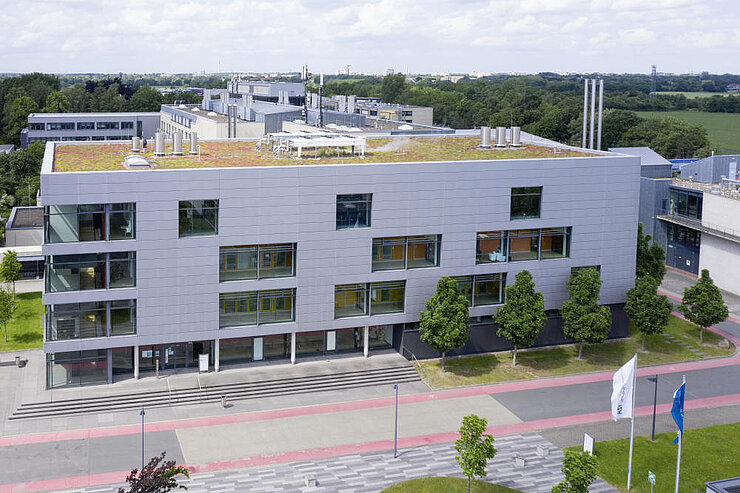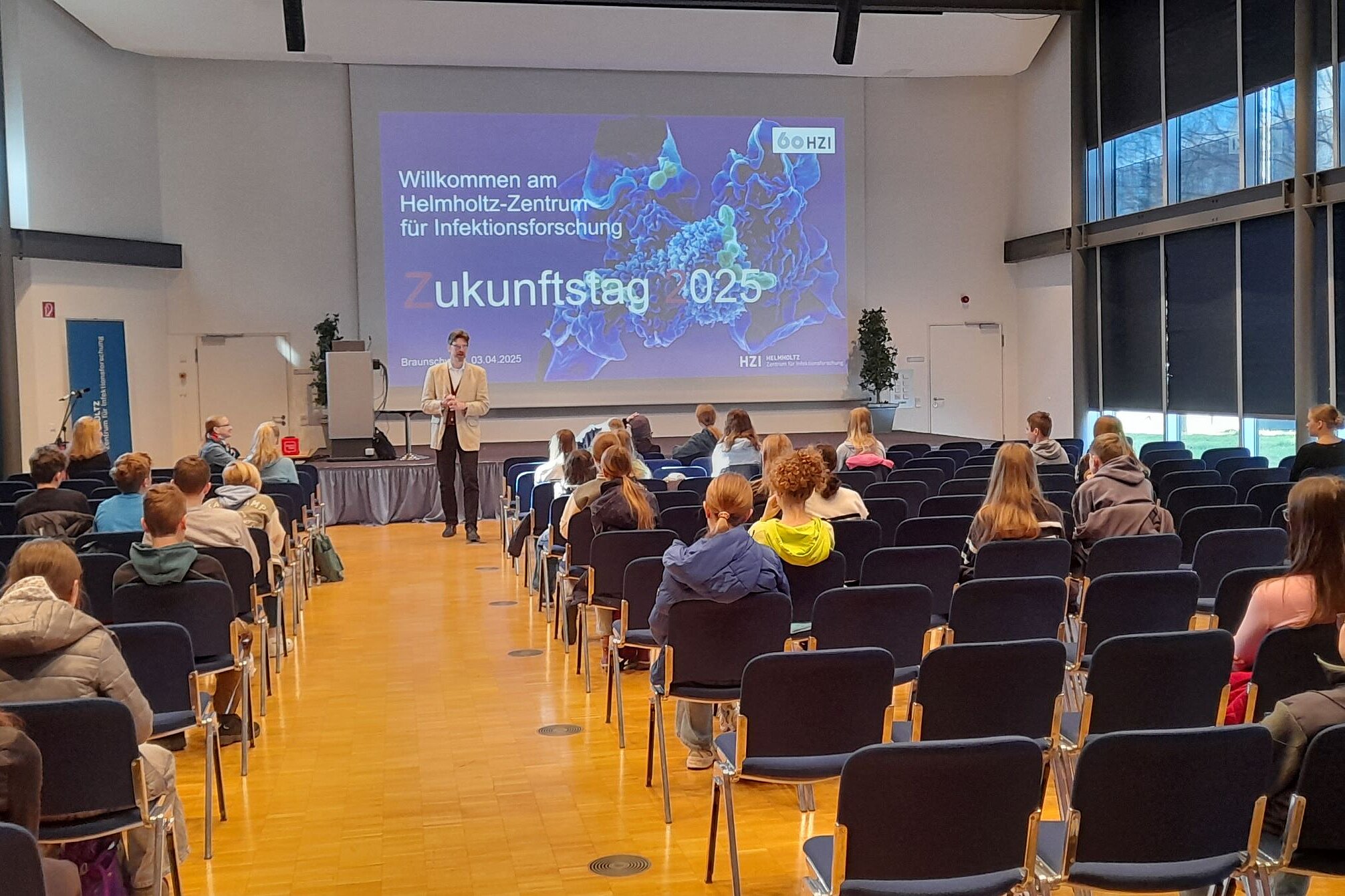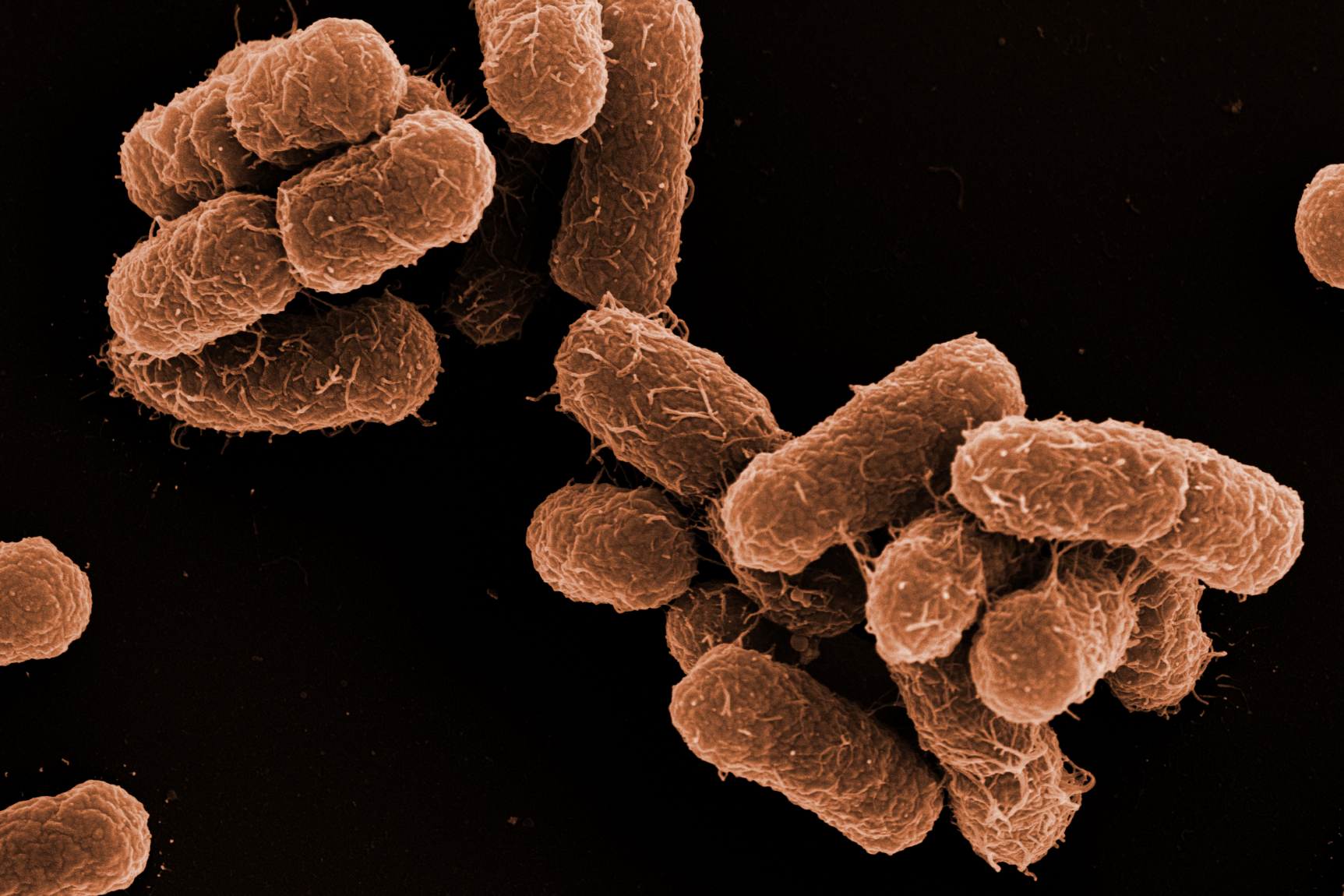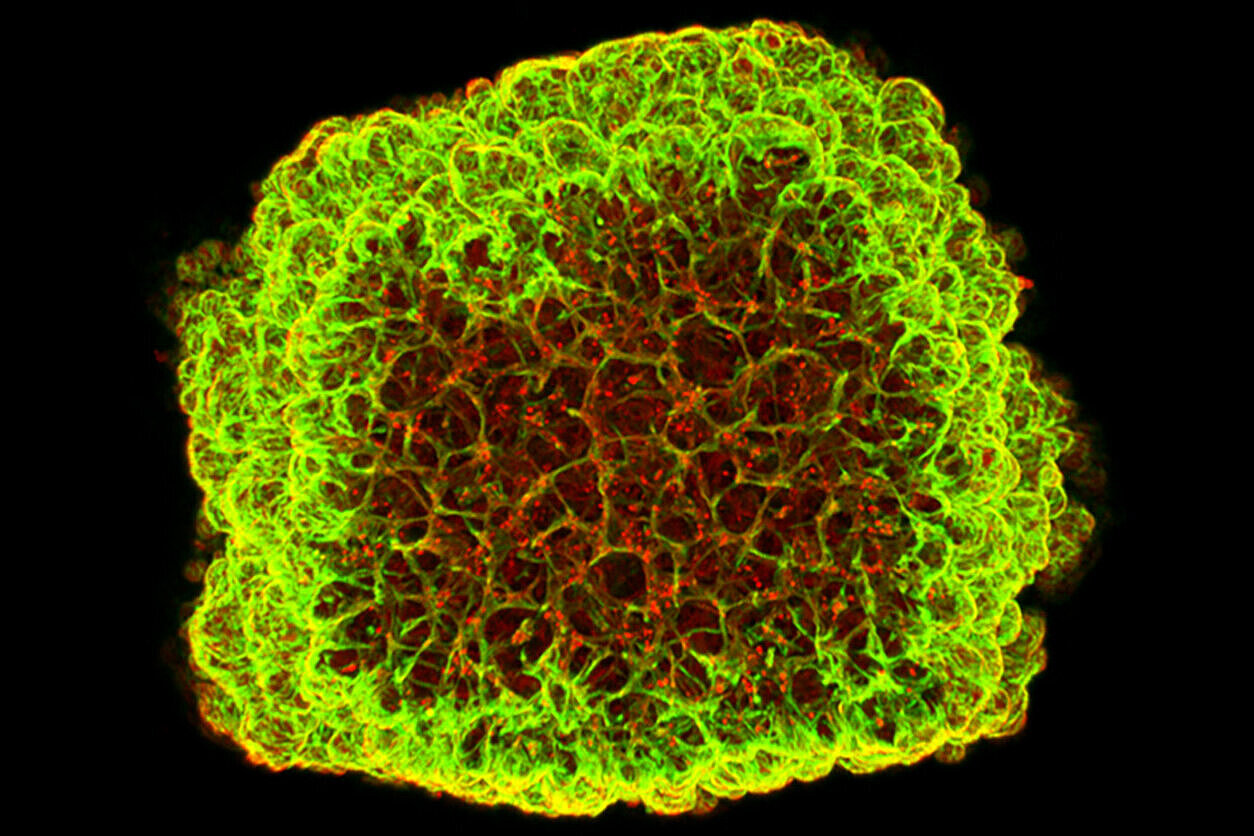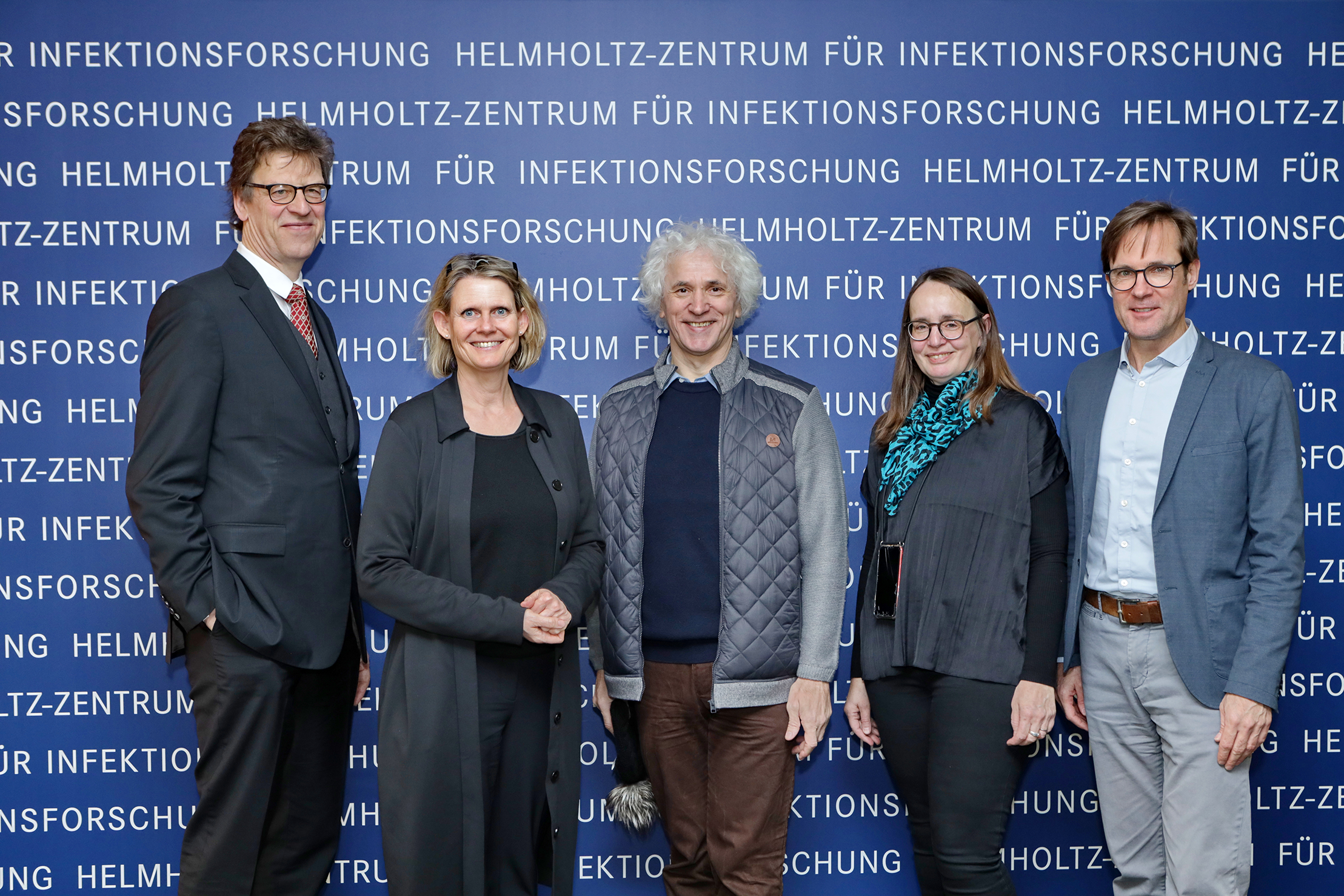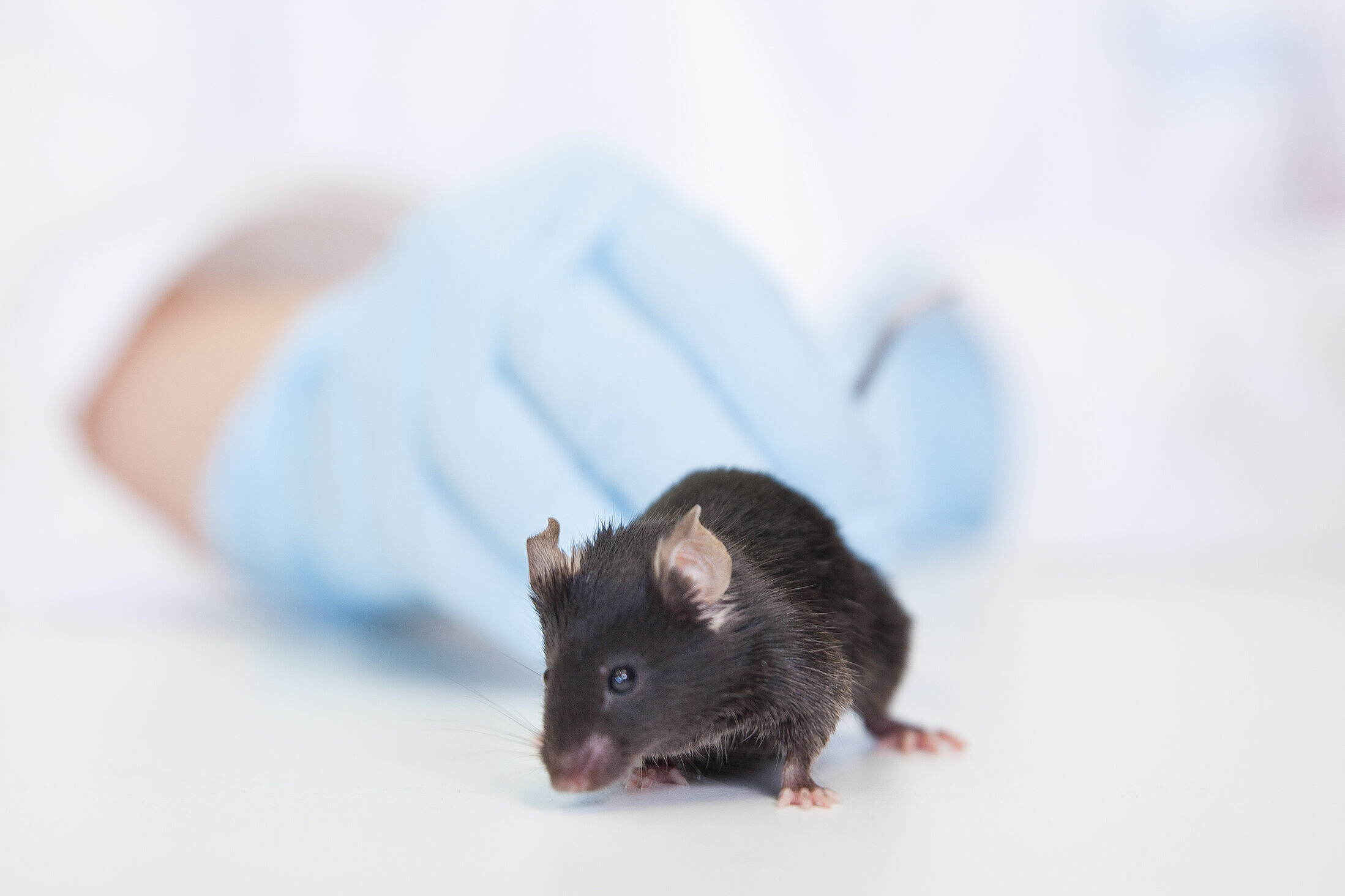
Core Facility of Comparative Medicine

Our Research
The HZI technology platform „Core Facility of Comparative Medicine” is responsible for the humane treatment and orderly care of laboratory animals required for scientific research purposes. We enable the HZI scientists to perform infection experiments on mice and hamsters up to biosafety level S3.
In our units, we house the animals under continuously monitored, standardized conditions (temperature, humidity, light cycle) in individually ventilated cages (IVC). Therefore, we can exclude unwanted infections by external pathogens. The barriers are strictly separated against the environment and are ventilated with sterile filtered air. All necessary material has to be sterilized; electronically controlled access is restricted to admitted personal only, complete change of clothes is necessary.
These hygienic measures not only keep our animals healthy – we can also ensure that no pathogens will leave our experimental barriers. This includes sterilization of all used materials (e.g. used bedding or food rests) before leaving the unit.
Animal husbandry and animal experiments are regulated by strict legal provisions, e.g. the German Animal Welfare Act (Tierschutzgesetz) , the Animal Welfare Regulation (Tierschutz-Versuchstierverordnung) and the Directive 2010/63/EU of the European Parliament and of the Council on the protection of animals used for scientific purposes. The animal facility management is supported by the Animal Welfare Officer and the Animal Welfare Committee.
Our Research
The HZI technology platform „Core Facility of Comparative Medicine” is responsible for the humane treatment and orderly care of laboratory animals required for scientific research purposes. We enable the HZI scientists to perform infection experiments on mice and hamsters up to biosafety level S3.
In our units, we house the animals under continuously monitored, standardized conditions (temperature, humidity, light cycle) in individually ventilated cages (IVC). Therefore, we can exclude unwanted infections by external pathogens. The barriers are strictly separated against the environment and are ventilated with sterile filtered air. All necessary material has to be sterilized; electronically controlled access is restricted to admitted personal only, complete change of clothes is necessary.
These hygienic measures not only keep our animals healthy – we can also ensure that no pathogens will leave our experimental barriers. This includes sterilization of all used materials (e.g. used bedding or food rests) before leaving the unit.
Animal husbandry and animal experiments are regulated by strict legal provisions, e.g. the German Animal Welfare Act (Tierschutzgesetz) , the Animal Welfare Regulation (Tierschutz-Versuchstierverordnung) and the Directive 2010/63/EU of the European Parliament and of the Council on the protection of animals used for scientific purposes. The animal facility management is supported by the Animal Welfare Officer and the Animal Welfare Committee.
Service
Animal husbandry in full service by well-trained animal caretakers:
- Species-appropriate husbandry of lab animals (food, water, cleaning of cages)
- Daily animal care and control
- Colony management
- Tissue biopsies and blood sampling
Healthcare and hygienic monitoring of the animals by veterinarians, additional support by the mouse pathology
Lab services:
- Hygienic rederivation
- Kryoconservation of mouse strains (embryo, sperm)
- In vitro fertilisation
- Embryo transfer for generation of transgenic lines (-> Transgenic Mice)
Support of experimenters by:
- Basic courses in lab animal science
- Lab animal courses for persons involved in animal experiments
- Talks and seminars for continuous education
Marina Greweling-Pils
![[Translate to English:] Portrait Dr. Marina Greweling-Pils Portrait Marina Greweling-Pils](/fileadmin/_processed_/7/7/csm_hzi_1711_marina-pils_jkr_001_0aa2b40ba5.jpg)
Marina Greweling-Pils studied veterinary medicine at the Hanover Veterinary School and the École Nationale Veterinaire de Lyon (France). After her graduation in 2004, she came to the Helmholtz Centre for her PhD thesis. Her research at the HZI focused on colitis and infections. During her Postdoc at the Hanover Medical School, Dr Greweling-Pils worked on the induction of tolerance in organ transplantation. She returned to the HZI as deputy head of the animal facility in 2009 and since 2011, she is head of the mouse pathology platform. In 2014, she became the HZI's Animal Welfare Officer and since 2022 she is head of the Core Facility Comparative Medicine.
Marina Greweling-Pils is committed to animal welfare in research. The recognition and prevention of background diseases in mice is a particular concern of hers. She is also a member of the GV-SOLAS Committee for Animal Welfare Officers.
Team
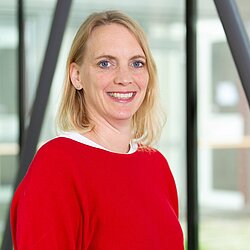






Selected Publications
Osbelt, L., Almási, É. D. H., Wende, M., Kienesberger, S., Voltz, A., Lesker, T. R., Muthukumarasamy, U., Knischewski, N., Nordmann, E., Bielecka, A. A., Giralt-Zúñiga, M., Kaganovitch, E., Kühne, C., Baier, C., Pietsch, M., Müsken, M., Greweling-Pils, M. C., Breinbauer, R., Flieger, A., Schlüter, D., … Strowig, T. (2024). Klebsiella oxytoca inhibits Salmonella infection through multiple microbiota-context-dependent mechanisms. Nature Microbiology, 9(7), 1792–1811. DOI: 10.1038/s41564-024-01710-0
Rox, K., Jansen, R., Lukežič, T., Greweling-Pils, M., Herrmann, J., Miethke, M., Hüttel, S., Hennessen, F., Abou Fayad, A., Holzhausen, C., Lundberg, C. V., Teague, J., Sudarman, E., Bülter, L., Hesterkamp, T., Stadler, M., Brönstrup, M., & Müller, R. (2024). Pharmacokinetic and pharmacodynamic evaluation of the atypical tetracyclines chelocardin and amidochelocardin in murine infection models. Microbiology spectrum, 12(1), e0128923. DOI: 10.1128/spectrum.01289-23
Abassi, L., Bertoglio, F., Mačak Šafranko, Ž., Schirrmann, T., Greweling-Pils, M., Seifert, O., Khan, F., Katzmarzyk, M., Jacobsen, H., Gödecke, N., Heine, P. A., Frenzel, A., Nowack, H., Dübel, S., Kurolt, I. C., Kontermann, R. E., Markotić, A., Schubert, M., Hust, M., & Čičin-Šain, L. (2023). Evaluation of the Neutralizing Antibody STE90-C11 against SARS-CoV-2 Delta Infection and Its Recognition of Other Variants of Concerns. Viruses, 15(11), 2153. DOI: 10.3390/v15112153
Metzdorf, K., Jacobsen, H., Greweling-Pils, M. C., Hoffmann, M., Lüddecke, T., Miller, F., Melcher, L., Kempf, A. M., Nehlmeier, I., Bruder, D., Widera, M., Ciesek, S., Pöhlmann, S., & Čičin-Šain, L. (2023). TMPRSS2 Is Essential for SARS-CoV-2 Beta and Omicron Infection. Viruses, 15(2), 271. DOI: 10.3390/v15020271
Herppich, S., Hoenicke, L., Kern, F., Kruse, F., Smout, J., Greweling-Pils, M. C., Geffers, R., Burton, O. T., Liston, A., Keller, A., Floess, S., & Huehn, J. (2023). Zfp362 potentiates murine colonic inflammation by constraining Treg cell function rather than promoting Th17 cell differentiation. European journal of immunology, 53(10), e2250270. DOI: 10.1002/eji.202250270
Publications
Animal Protection Committee
The Animal Welfare Committee assumes the tasks prescribed in §6 of the Animal Welfare Regulation ("Tierschutz-Versuchstierverordnung"), such as supporting the Animal Welfare Officer, surveilling the animals' welfare, and tracing the progress und results of animal experiments.
The committee consists of the Animal Welfare Officers, representatives of the department´s animal care staff as well as scientific members. The committee can be contacted via e-mail.
